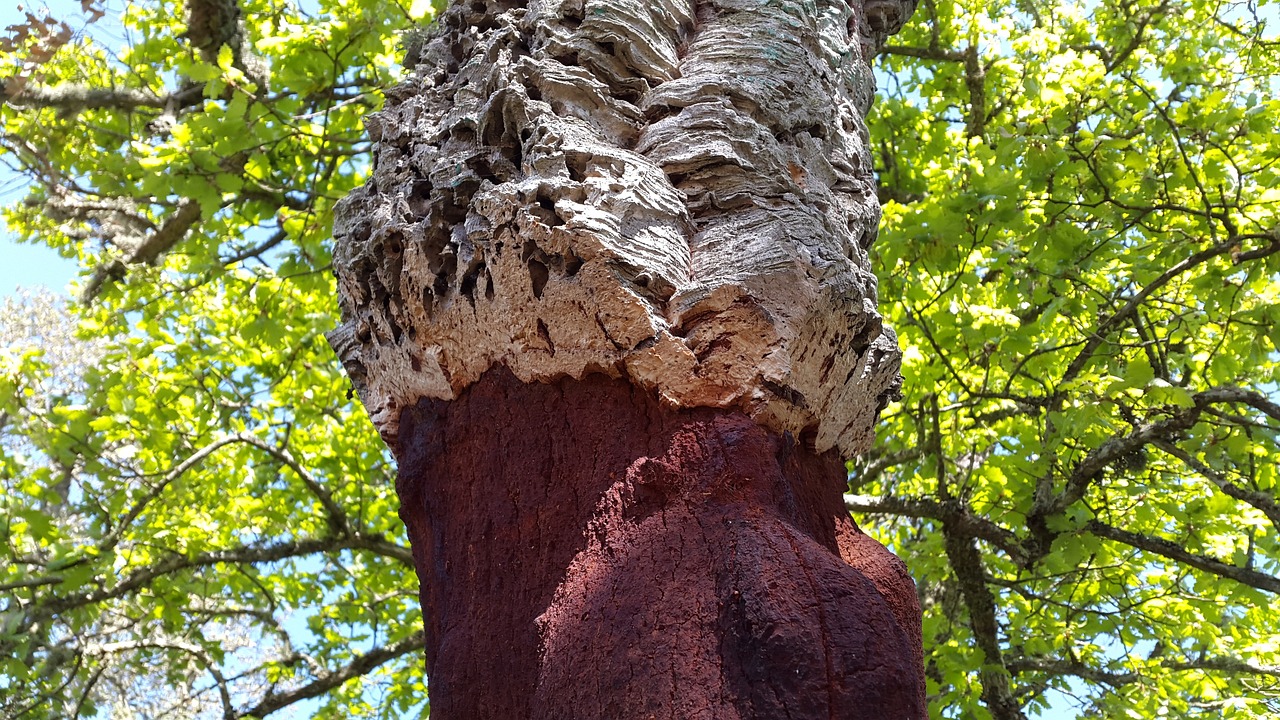Are Cork Trees Endangered: Myth or Truth?

Harming endangered beings or their habitats would be a cardinal sin for any environmentalist or eco-friendly person. There are, however, some misconceptions about certain plants that are supposedly endangered. This brings us to the cork oak tree—Quercus Suber.
You may have heard that cork trees are endangered or threatened, but that is disingenuous at best. The notion that we shouldn’t so much as touch one of these amazing evergreen oaks is rooted in misinformation or, in some cases, concerted disinformation campaigns. We’ll tell you the truth and provide some advice on making the most out of this renewable material.
What is Cork?
Cork is not just a city in Ireland—it’s a sustainable product made from the bark of cork oak trees largely found in Portugal, Spain, and northwest Africa. Portugal accounts for around half of the world’s harvested cork.
Many, if not most, people associate cork with wine bottles. Because cork is relatively elastic and impermeable, it is quite effective at keeping the good stuff safe and protected inside the glass bottles. It also floats and is resistant to fire.
Wine stoppers are far from the only cork product, however. You might have stuck a pin on a cork bulletin board before. The material is also gaining favor as a sustainable, environmentally friendly canvas for wallets, bags, shoes, insulation, kitchen materials, and much more. You may not have known this about cork for reasons we’ll get into soon.
Do Cork Trees Regrow Their Bark?
Yes! Cork oak trees fully regrow their bark every decade or so. Harvesting cork is not a simple or easy process, however.
Cork trees usually don’t produce the material until their 25th birthday. Even then, the first two harvests yield relatively low-quality cork that is not acceptable for many mainstream uses. Once a cork oak tree turns 45, harvesters are able to procure the material every nine to 10 years between bark regeneration.
Harvesters often spend years training to use the specialized tools required to delicately lift the outer bark layer from the trees. The best part, though, is that no cork trees are felled in the process. In many cases, cork trees regrow more bark than before, compounding the material’s eco-friendliness.
The History of the Cork Myth
A somewhat common perception circulating the wine community, among other places, is that cork is threatened or endangered. The natural supply of cork is not in decline. Cork trees are not endangered or threatened in any practical sense.
The Portuguese government did, in fact, pass laws to prevent the unauthorized destruction of cork trees in the 1920s amid fears that developers would clear the land. This well-intentioned move may have contributed to the perception of cork trees as endangered.
Perhaps a bigger factor in this misconception, however, is the introduction of screw caps, plastic stoppers, and synthetic cork to plug glass wine bottles. Cork stoppers are still present in about 70 percent of wine bottles in the U.S., but that figure was previously in the high 90s.
The primary reason for this decline is lowering costs for wine entrepreneurs and wholesalers—screw caps and plastic stoppers are a fraction of the cost of genuine cork. In rare cases, a type of infection can take hold in a cork wine stopper and negatively affect the wine’s flavor. Although it may not have the greatest taste, ingesting these wines will not make you sick.
Aluminum screw caps can generally be recycled, but they are not biodegradable. Procuring aluminum in the first place also generates a great deal of pollution. Furthermore, many aluminum screw caps cannot be recycled due to the presence of plastic cap liners—some of which have been identified as potentially harmful substances.
What is the State of Cork Trees Today?
That there is a shortage of cork is unequivocally a myth. There are no credible reports stating that cork trees or the supply of cork are dwindling. Demand may be down, but these resilient trees remain plentiful in the Mediterranean basin and vital for many local economies across the Iberian Peninsula.
It may cost more for wine bottlers to use natural cork stoppers, but the cost of polluting the planet with single-use plastics is far greater. Besides cork being a renewable resource, it is also recyclable; the cork in your Birkenstocks, vegan leather bag, or furniture upholstery may have once bottled a quaff enjoyed in good, friendly company.
How to Care for Cork
Cork is elastic, buoyant, flame-resistant, and impermeable, so it doesn’t really need our help. Right? Well, not exactly. Cork can gather dirt, dust, grime, and mold if not handled appropriately. Because it’s derived from wood, cork will eventually crumble—no need to hasten its demise!
Fortunately, cleaning your cork products is not difficult. You can use warm water, a gentle cloth, and a small dollop of soap to get rid of stains. There is no need to use artificial heat—letting the product dry naturally is best.
When not in use, store your portable cork product in a dry, cool place. Like many other substances, it can gather mold when exposed to humid spaces. Let the product dry in its original shape. Don’t stuff it in a plastic bag or stack heavy things on it, for instance. If it completely dries in an irregular shape, it might permanently assume that warped figure.
Our Take on Cork
There aren’t many things not to love about cork. It’s renewable, recyclable, compostable, biodegradable, hypoallergenic, and lightweight. It fares extremely well against the elements and is easy to clean. You might be surprised at its versatility. Purchasing cork products also helps maintain a longstanding way of life for skilled cork harvesters in Portugal, Spain, and northwest Africa.
We strongly feel that any extra cost associated with purchasing products made from this amazing material is well worth it when you consider the positive impact it has on the environment. If you’re interested in purchasing cork products from environmentally friendly businesses, this article might be a good starting point. Those brave enough for DIY home projects might have success with this awesome website.


